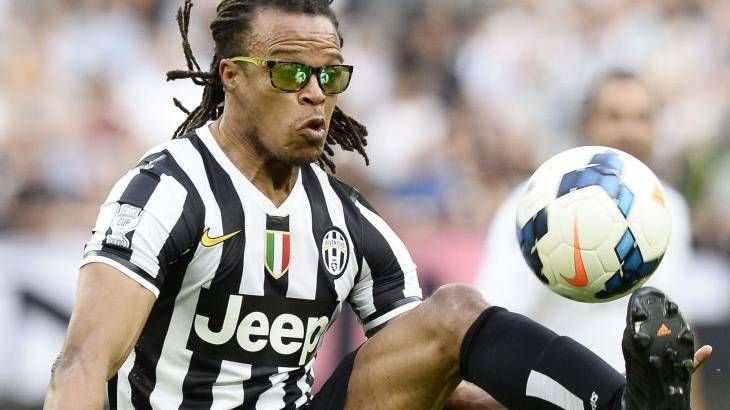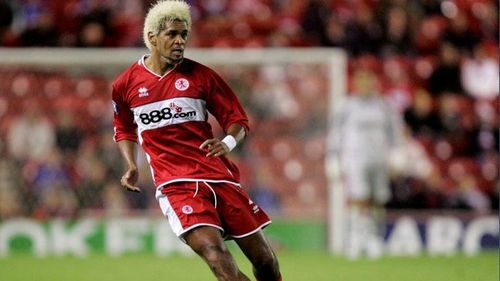
10 footballers who were banned for taking drugs
As a general rule – particularly in the modern game – professional footballers are extremely clean cut when it comes to what they are prepared to put in their bodies. Gone are the days when it was acceptable to drink heavily or take drugs the night before a big game. Such are the demands of the game these days that it would be too easy to identify anyone suffering from the effects of a hangover or a comedown – but that doesn’t mean some footballers don’t fall foul of temptation.
Every now and again, whether it be through a momentary lapse in concentration or through prolonged abuse, footballers will be caught out consuming or using substances they shouldn’t – and that includes drugs. We list ten footballers who were not only caught using drugs, but who were banned from the game for doing so.
10) Edgar Davids

Edgar Davids, who is now 42, only officially retired from professional football in 2014, after having ended his career as player-manager of lowly English team Barnet. But his career was in jeopardy as far back as 2001 when he tested positive for the banned steroid Nandrolone during his stint at Juventus. The Dutch midfielder was expected to be banned for 16 months, which would have seen him miss the 2002 World Cup.
However, Davids appealed against the ruling and it resulted in the reduced punishment of a four-month ban. The midfielder had been fighting for the cancellation of the suspension by claiming that homeopathic medicines were to blame for the high levels of nandrolone in his system.
9) Jake Livermore

The most recent high-profile case of a footballer being banned for taking drugs comes in the form of Jake Livermore. The Hull City midfielder tested positive for cocaine in May of this year and was subsequently suspended from football for the remainder of the Premier League season, pending further investigation. The case is still ongoing and it remains to be seen exactly what will come of it.
25-year-old Livermore – who earned one England cap back in 2012 – was Hull’s record signing when he joined the club permanently for around £8 million from Tottenham Hotspur in 2014, but he faces potentially being sacked from the relegated club should further investigation categorically prove his abuse of the Class A drug.
8) Stan Lazaridis

Former Australian international, West Ham United and Birmingham City winger Stan Lazaridis was given a 12-month suspension from the game in 2007 when he tested positive for the prescription alopecia medication anti-androgen Finasteride. The substance was banned at the time and even though Lazaridis made it clear that it had been used in good faith, without knowledge of it being illegal and that it wasn’t a performance-enhancing drug, his suspension went ahead anyway.
Lazaridis was playing for Perth Glory in his homeland when the ban was applied. Given that he was 34-years-old at the time, he opted to retire from the game instead of waiting for his suspension period to end to return to the game.
7) Deco

The case of Deco is a somewhat unique one, in the sense that his ban came after he had retired, but he still chose to appeal it. The former Portugal, Porto, Chelsea and Barcelona midfielder spent his final playing days at Fluminense in Brazil and retired in August of 2013, just shy of his 36th birthday.
He had tested positive for traces of furosemide – a diuretic that can be used to mask traces of other substances – in March. But he kept playing until four days prior to his retirement, with the ban officially being implemented after that.
Deco insisted that the positive test was the result of a contaminated vitamin supplement and pleaded his innocence, hoping to overturn the ruling in spite of the fact that he had already stopped playing and the ban essentially wouldn’t have even happened.
6) Abel Xavier

Abel Xavier was probably best known for his crazy hairstyles and beard, but the player will also be remembered in a more negative light due to his 18-month ban for taking anabolic steroids. The Portuguese international defender was playing for English side Middlesbrough at the time and, following a UEFA Cup tie in 2005, tested positive for the banned substance dianabol.
As a result, Xavier – a well-travelled player whose former clubs include the likes of Benfica, Bari, Real Oviedo, PSV Eindhoven, Everton, Liverpool, Galatasary, Hannover 96, Roma and Los Angeles Galaxy – became the first player in the Premier League to be banned for a non-recreational drug.